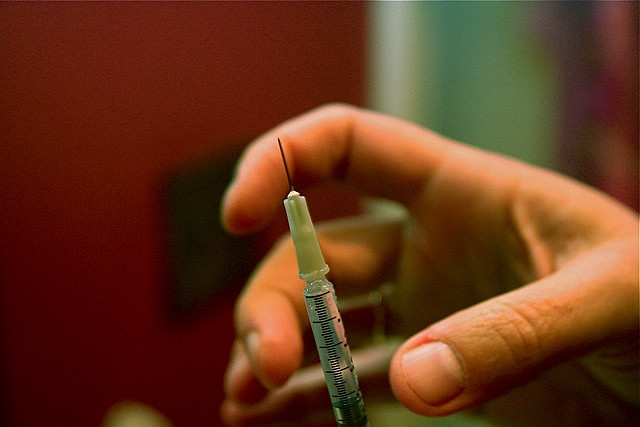
Looks like an injection to prevent heart attack is very close to reality.
New research shows that a single injection, based on a genome editing method, can help manage cholesterol levels and reduce the risk of getting heart attacks by up to 90 percent.
The groundbreaking innovation revolves around a liver gene, known as PCSK9.
In 2003, a team of French researchers discovered the cholesterol regulating ability of PCSK9 and linked mutations in this gene to high cholesterol levels and heart attacks.
However, surprisingly, researchers from Texas discovered that the presence of the gene mutation benefited some people. People with the so-called good defect had 15 to 28 percent lowered levels of bad cholesterol (low-density lipoprotein), and 47 to 88 percent lowered risk of heart attack than the average.
"Our reasoning was that nature has already done the experiment; you have people who have won the genetic lottery," researcher Kiran Musunuru from the Harvard Stem Cell Institute (HSCI), said in a news release.
"They are protected from heart attack, and there are no known adverse consequences. So that led us to reason that if we could find a way to replicate this, we could significantly protect people from heart attack."
The researchers used a genome editing tool called CRISPR/Cas9, to target the gene PCSK9 in the liver and make permanent changes in its DNA. Experiments conducted on mice proved that the new technology can help lower cholesterol and protect against heart attack.
"Within three to four days of delivering the system into the liver, the majority of the PCSK9 gene copies in all of the liver cells were disrupted, knocked out. And what we hoped to see was much less of the protein product in the bloodstream, which is what we saw," Musunuru said.
"The other consequence that we saw was a 35 to 40 percent reduction in cholesterol levels in these mice, which would translate in humans to a heart attack risk-reduction of as high as 90 percent."
The study has been reported in the journal of the American Heart Association Circulation Research.
Researchers from the Harvard Stem Cell Institute (HSCI) and University of Pennsylvania stressed that it would take another 10 years to convert their findings - i.e. vaccination for heart diseases - into reality.
It is estimated that nearly 17 million people worldwide die of heart attack and strokes. So efforts to manage the killer disease have been on for a long time. In November last year, researchers from the University of Edinburgh in the UK developed a non-invasive imaging technique to signal heart attacks.
Similarly, in January this year, a team of researchers from The Scripps Research Institute (TSRI) in the US, developed a blood test to detect heart attack early.

















